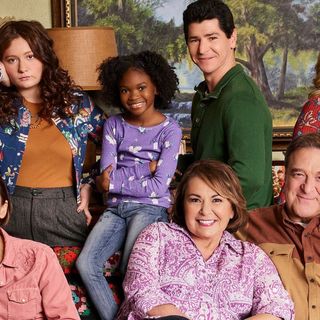It might seem frivolous to point out, given the far more dramatic developments during the current administration, but President Trump is still yet to award any National Medals of Arts or National Humanities Medals. As the New York Times recently reported, Trump has not yet awarded either the 2016 or the 2017 round of arts medals. (He also hasn’t given out National Science or Technology Medals.) It’s now the longest ever gap in awarding such medals, with the most recent round being the 2015 awards under President Obama. And while the White House claims that the awards will likely be given out “later this year”, there are some concerns that the absence is a deliberate policy decision, rather than a mere administrative delay.
Trump seems to view his business dealings as an alternative to other forms of creative expression.
So why does it matter? Well, for one thing, it raises questions around the ongoing politicisation of culture in the Trump era. Countless forms of US pop-culture – and culture more broadly – have responded to the Trump administration, using art to address broader political conditions. It’s now become commonplace to ask how new TV shows, theatre productions, music albums, and of course films speak to the Trump era, and we’ve seen an enormous rise in politicised forms of culture. Under such conditions, any potential recipients of such awards risk being politically over-interpreted.
Trump's delay in giving out these awards also exposes, as the New York Times rather delicately points out, “the president’s often awkward relationship with the arts”. Trump famously reads little, let alone fiction or poetry. He has eliminated the President’s Committee on the Arts and the Humanities, and chose not to attend the 2017 Kennedy Center Honors, which celebrate lifetime contributions to the arts. In terms of visual art, Trump’s love of self-portraits has been widely discussed, though he did reveal something of his conventional – and notably European – aesthetic preferences earlier this year by requesting a Van Gogh from the Guggenheim to hang in the White House. (The chief curator, Nancy Spector, pointedly offered an 18-carat golden toilet in response.)
Bizarrely, Trump seems to view his business dealings as an alternative to other forms of creative expression. “Deals are my art form,” Trump wrote in 1987’s The Art of the Deal. “Other people paint beautifully on canvas or write wonderful poetry. I like making deals. Preferably big deals. That’s how I get my kicks.” Since his own concerns are with economics rather than art, it’s perhaps no surprise that he doesn’t seem particularly concerned with publicly honouring “beautiful” painters or “wonderful” poets.
So what laurels has Trump conferred? Well, he’s given out numerous honours for military and law enforcement, including the Medal of Valor to six civilians who assisted victims of the 2015 shooting in San Bernardino. Among others, he’s also given out several Medals of Honor, bestowing the US military’s highest honour on various servicemen. Such awards are of course far less contentious, and largely escape partisan politics, unlike those relating to the arts.
The National Humanities Medals are given in recognition of individuals or organisations who have “deepened the nation’s understanding of the humanities and broadened our citizens’ engagement with history, literature, languages, philosophy, and other humanities subjects”. What kind of cultural figure would Trump choose to honour in this way? And who might plausibly accept such an award? One important hint lies in the response of the novelist Dave Eggers, who recently said that the only circumstances under which he would consider accepting such an award was if “there was absolutely no connection to the White House and we just acknowledge the work of the NEA [National Endowment for the Arts] and the NEH [National Endowment for the Humanities]”, which seems an unlikely scenario.







